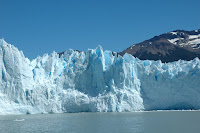Keep in mind that science is incremental. One study generally isn't meaningful by itself. Science is the compendium of all related studies. For example, one study may suggest that (under the conditions of the study) Antarctica is gaining more ice than it is losing while other studies show that West Antarctica may have gone into a state of irreversible retreat. That doesn't make any one study right or wrong, merely additional data points in the total understanding of the science. It's how science works.
A summary of this particular study being misrepresented can be found in NASA's press release. You can download the full study as a PDF file from this journal site. I highly recommend anyone wanting to understand the study read the actual paper because press releases often do a lousy job of communicating the science. Yes, I know, communicating the science is what press releases are designed to do, but my experience tells me that they introduce confusion as often as they inform, in part because they report single studies and not the total science. I'll tackle that topic in another post.
The inadequacy of press releases for studies and the very nature of how science works results in opportunities for climate denier lobbyists to exploit uncertainties. And that is exactly what they do.
In this case we have information that may (or may not) contradict other information and the lobbyists pounced on it. As is their standard tactic, deniers take one point from the paper, fabricate an entire story line that fits their narrative, and put the false story line out on their paid lobbyist blog and media outlets. These lobbyists know that their false story will be plagiarized and repeated on every conspiracy and political blog by ideologues until the blogosphere is saturated with the false interpretation. That's how climate denial lobbyists work.
Greg Laden, a scientist who writes on Science Blogs, explains how the NASA study has been "misunderstood." [I think Greg is giving the blogosphere too much benefit of the doubt by using the term "misunderstood;" as the recent revelations about Exxon's knowledge decades ago that fossil fuels were causing climate change show, climate denial lobbyists know they are misrepresenting (i.e., lying about) the science. It's intentional.] That said, Greg notes that to begin with, the study may not be correct. While touted as "recent data" the data set used actually ended in 2008 so would miss the rapid ice loss of the last seven years. As Greg notes:
The last decade of research on Antarctica have shown, in many studies using a variety of techniques, that Antarctica is contributing to sea level rise. They have also shown that the rate of melting in Antarctic is probably increasing. Even more importantly, they have indicated that certain areas of Antarctic are current in a state of instability, suggesting that the rate of contribution of the southern continent’s ice mass to sea level rise may increase abruptly in the near future.
So the study, like all studies, needs to be placed into context with the state of the science. Deniers never do that; they cherry pick what they like and make believe all the rest of the science doesn't exist. This tactic is so prevalent in climate denial that the lead scientist of the study even predicted that climate deniers would misrepresent his work, which is exactly what they did, as reported in the above linked article:
"I know some of the climate deniers will jump on this," but "it should not take away from the concern about climate warming."
The first lesson here is that it isn't appropriate to take one study and assume it represents the total state of the science. Science is the sum total of all the relevant studies. The second lesson is that the climate denial lobbyists knowingly and willfully misrepresent single studies and then draw global "state of the science" conclusions that are inconsistent with the sum total of all the science.
